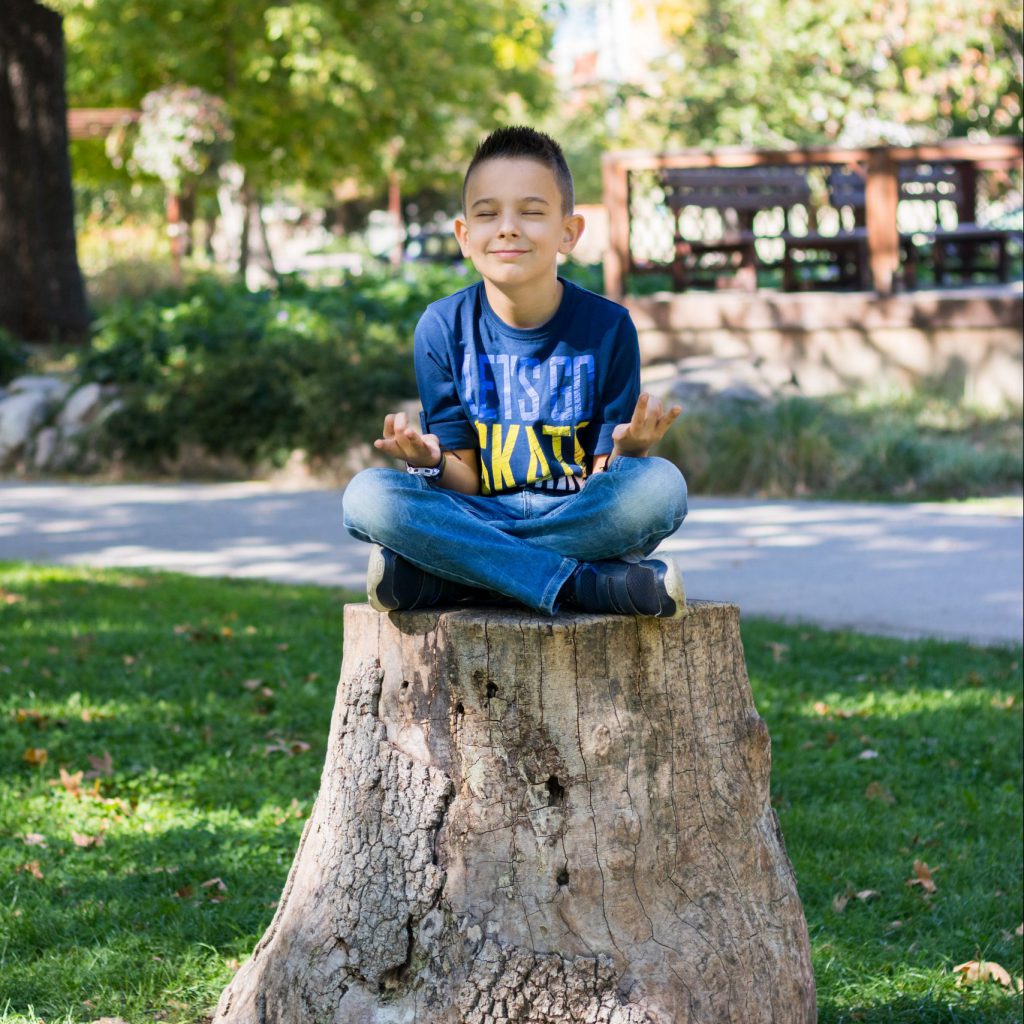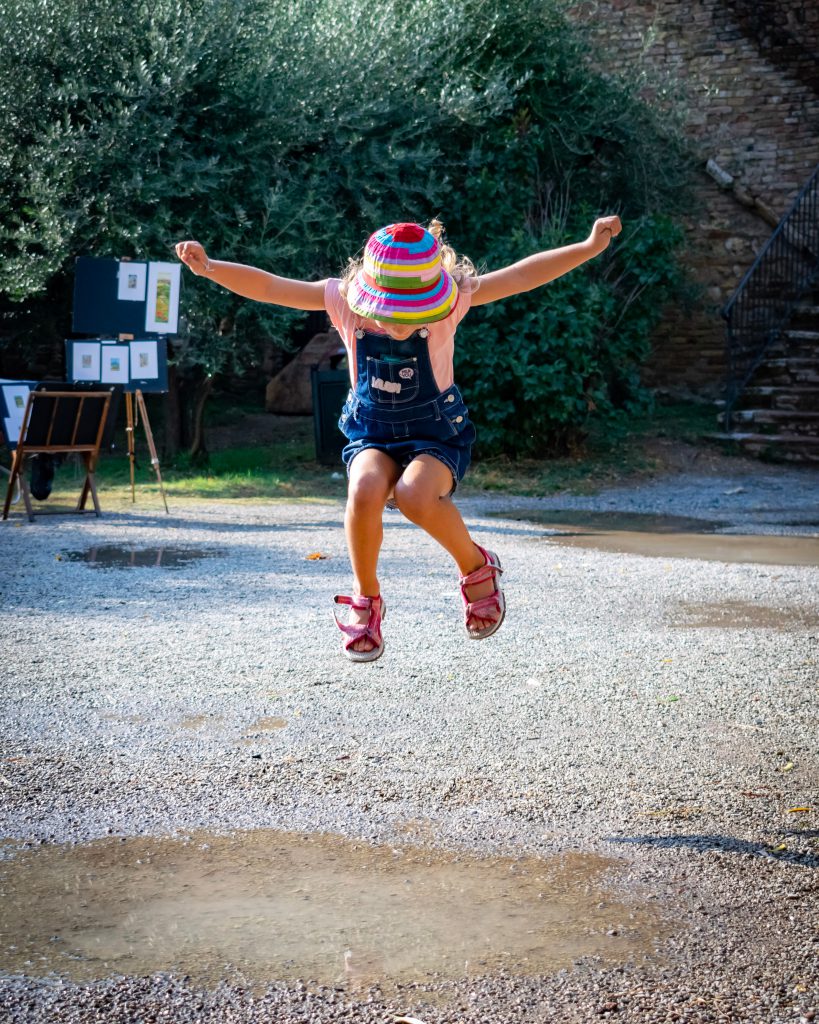by Gabrielle Hillman, B.A., Graduate Intern

What is Mindfulness?
Mindfulness means something different to everyone but a general definition refers to it as being “the quality or state of being conscious or aware of something”. For kids, this can be explained as paying full attention to something, slowing down and taking your time to notice everything. Relaxed.
There are many ways to be mindful or practice mindfulness. These ideas are unique to each individual and pull you into the moment and make yourself aware of how you feel about what is going on around you. When you practice mindfulness you are connecting your thoughts to your body and actions.
Why Practice Mindfulness With Kids?
During challenging and stressful times mindfulness is important to ground yourself and have a way to collect yourself. During happy and exciting times, mindfulness can be utilized for a way to express gratitude and appreciate things around you.
Practicing mindfulness with children gives them foundational skills to listen to their own bodies and helps them to learn about themselves. These lifelong skills can be built upon and help them through all stages of life.
“Mindfulness training offers one approach to promote self-regulation, and potentially, to improve long-term developmental outcomes.”
Galla, 2016
Activities for Families to Promote Mindfulness
Mindfulness is a great skill to teach your kids that can help them to navigate through life. There is no right or wrong way to be mindful so do what works best for you!
Morning Affirmations
Morning affirmations with your child can be a helpful reminder of their abilities and the daily dose of encouragement they need to get through the day. You can pick new ones every day or stick to the same few sentences. Morning affirmations are a great way to set intentions for the day and highlight that they are capable of anything they put their mind to! Examples may include: “I am smart, I am creative, I am a good friend.”
Yoga
Yoga is a great way for kids to strengthen their mind-body-breath connection. There are wonderful free resources online that are specific for children (Gaia.com or Cosmickids.com, or YouTube). Yoga is a great way for kids to learn how to listen to their bodies. When taught in an interactive and dynamic way kids can be empowered by yoga and pick up the poses quickly. There are many modifications that can be made to support kids of all levels and abilities!
Meditation
Meditation is another great way to connect your mind and your breath. There are plenty of apps and websites that provide free guided meditation and breathing exercises. (Headspace for Kids and Stop, Breathe & Think, Mindfulness for Children are two.) Meditation is a great way for kids to feel relaxed and take note of their feelings. This sense of awareness can be helpful in all aspects of life. There is a great Zen proverb that says “You should sit in meditation for twenty minutes every day — unless you’re too busy. Then you should sit for an hour.” Meditation is a great way to collect yourself and feel in control of your life and your emotions.

Fresh Air
Going outside is good for the mind, body, and soul! Going outside every day can help kids feel connected to the world around them. Let them take their shoes off and run in the grass or jump in the puddles! Allow kids to explore and teach them about how interconnected the world is — getting muddy is part of life!
Nutrition
We are what we eat! As cliché as it is, it is true! Make sure your kiddos are eating a well-balanced diet filled with lots of fruits and veggies! Try to find fun and healthy recipes filled with vitamins, minerals, and healthy fats! Eating a balanced diet can help with their mood and helps to teach them about the importance of taking care of their bodies.
Gabrielle Hillman
AM (MSW Equivalent) Candidate, University of Chicago, 2021
Behavioral Intervention Graduate Intern, Tuesday’s Child
B.A., Sociology, DePaul University, 2017
REFERENCES
Galla B.M., Kaiser-Greenland S., Black D.S. (2016). Mindfulness Training to Promote Self-Regulation in Youth: Effects of the Inner Kids Program. In: Schonert-Reichl K., Roeser R. (eds) Handbook of Mindfulness in Education. Mindfulness in Behavioral Health. Springer, New York, NY

